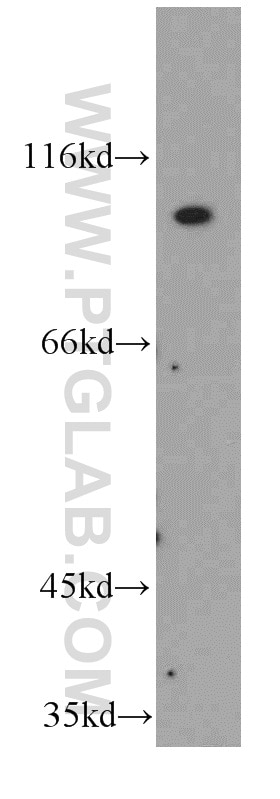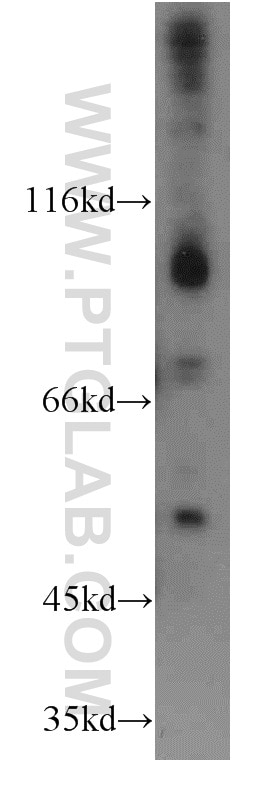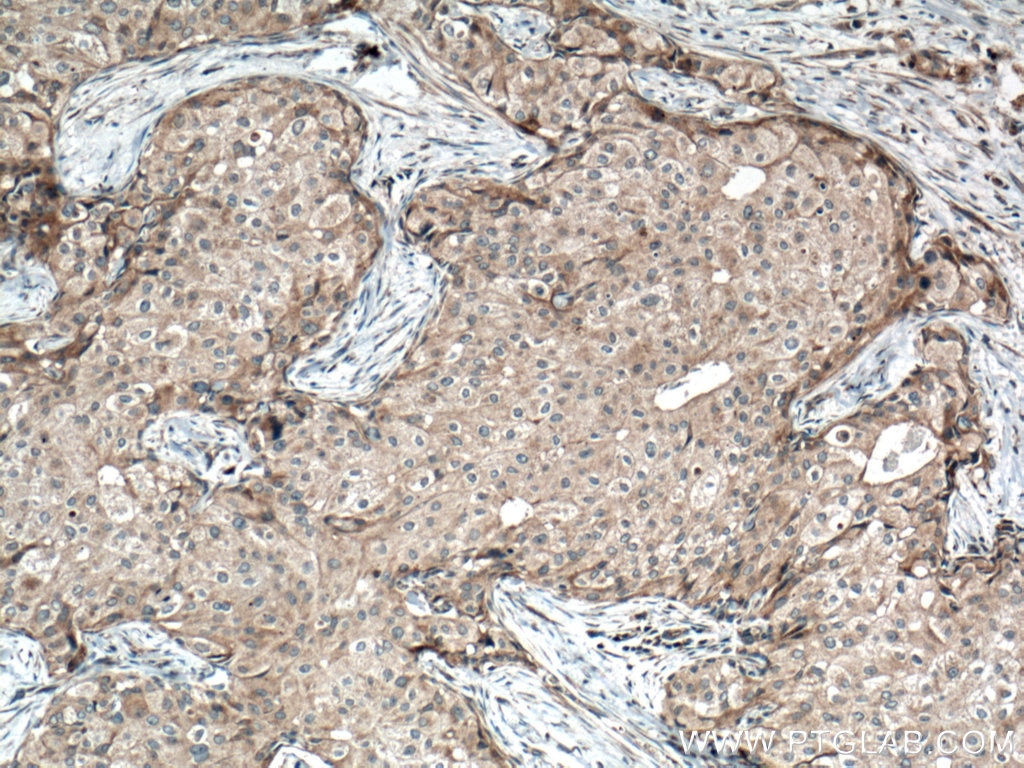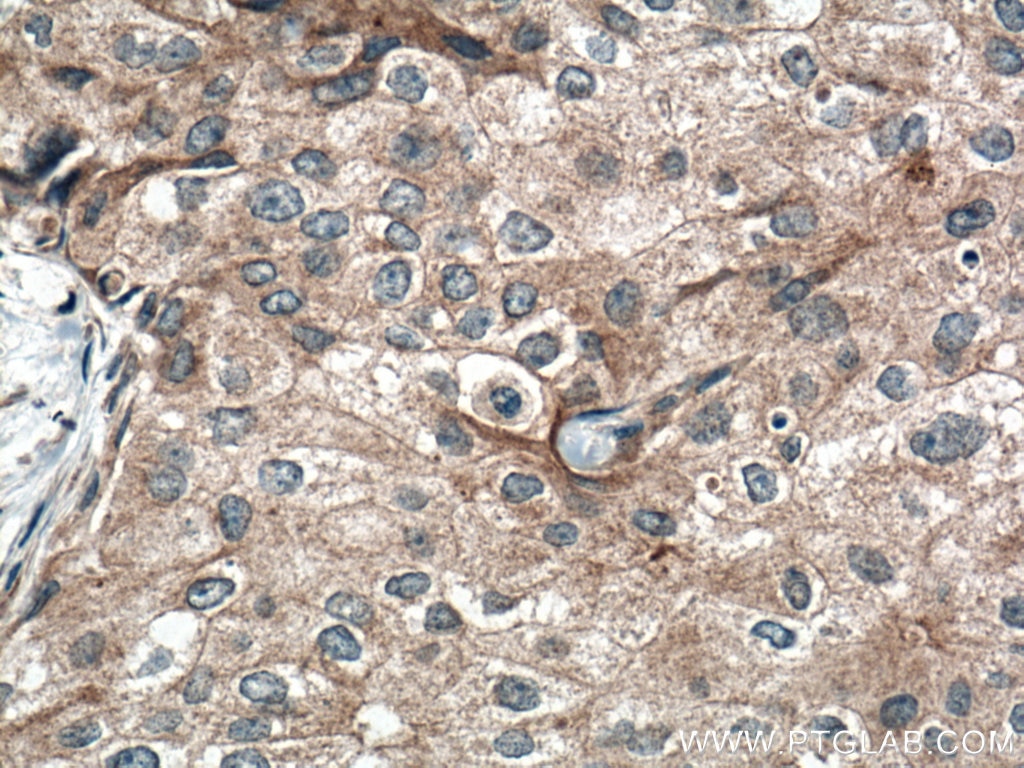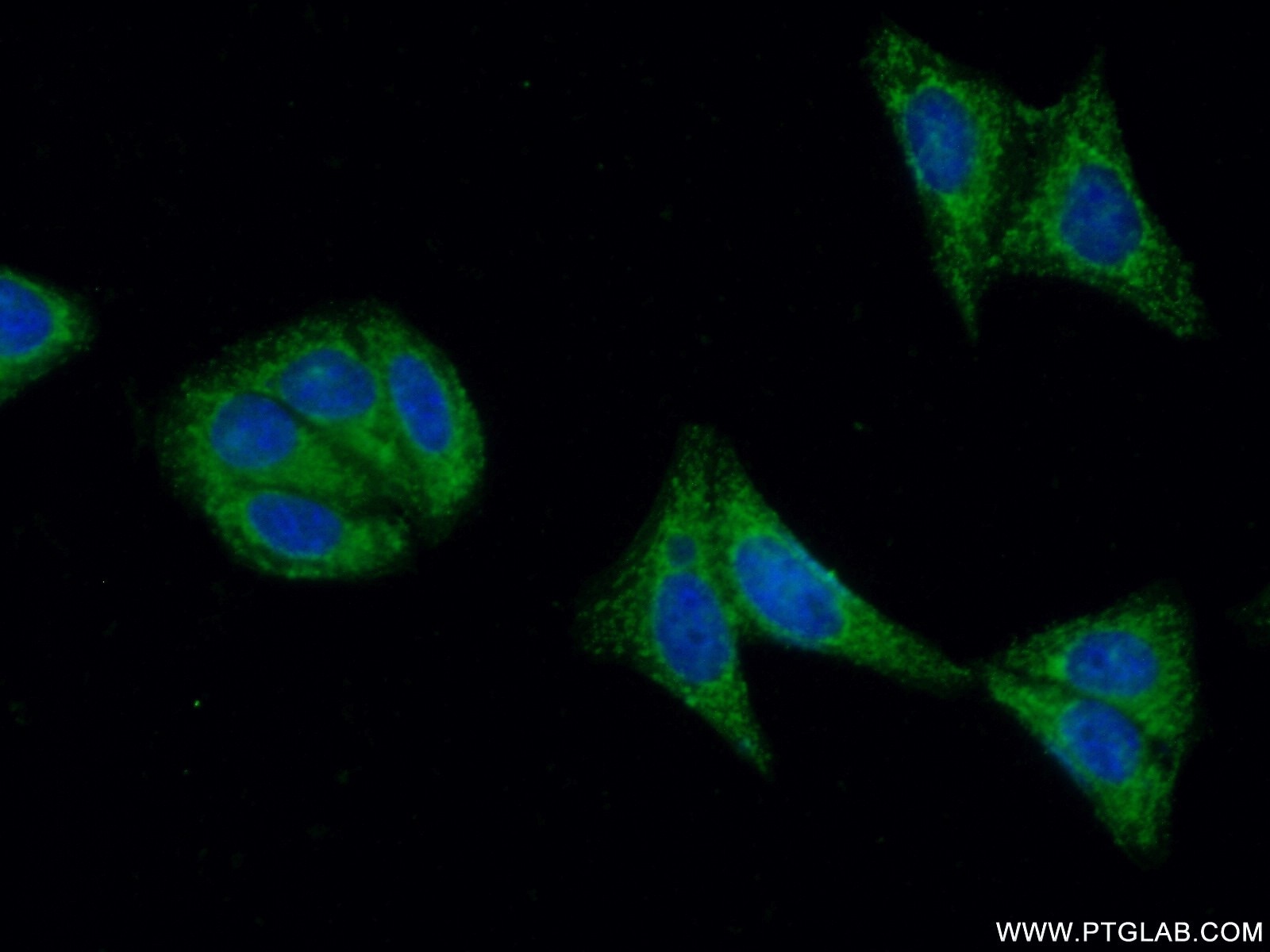Validation Data Gallery
Tested Applications
| Positive WB detected in | HepG2 cells, mouse lung tissue |
| Positive IHC detected in | human breast cancer tissue Note: suggested antigen retrieval with TE buffer pH 9.0; (*) Alternatively, antigen retrieval may be performed with citrate buffer pH 6.0 |
| Positive IF/ICC detected in | HepG2 cells |
Recommended dilution
| Application | Dilution |
|---|---|
| Western Blot (WB) | WB : 1:200-1:1000 |
| Immunohistochemistry (IHC) | IHC : 1:50-1:500 |
| Immunofluorescence (IF)/ICC | IF/ICC : 1:50-1:500 |
| It is recommended that this reagent should be titrated in each testing system to obtain optimal results. | |
| Sample-dependent, Check data in validation data gallery. | |
Published Applications
| KD/KO | See 2 publications below |
| WB | See 11 publications below |
| IHC | See 4 publications below |
| IF | See 7 publications below |
Product Information
11098-1-AP targets FGFR4 in WB, IHC, IF/ICC, ELISA applications and shows reactivity with human, mouse, rat samples.
| Tested Reactivity | human, mouse, rat |
| Cited Reactivity | human, mouse |
| Host / Isotype | Rabbit / IgG |
| Class | Polyclonal |
| Type | Antibody |
| Immunogen | FGFR4 fusion protein Ag1573 相同性解析による交差性が予測される生物種 |
| Full Name | fibroblast growth factor receptor 4 |
| Calculated molecular weight | 88 kDa |
| Observed molecular weight | 100-110 kDa |
| GenBank accession number | BC011847 |
| Gene Symbol | FGFR4 |
| Gene ID (NCBI) | 2264 |
| RRID | AB_2103657 |
| Conjugate | Unconjugated |
| Form | Liquid |
| Purification Method | Antigen affinity purification |
| UNIPROT ID | P22455 |
| Storage Buffer | PBS with 0.02% sodium azide and 50% glycerol pH 7.3. |
| Storage Conditions | Store at -20°C. Stable for one year after shipment. Aliquoting is unnecessary for -20oC storage. |
Background Information
Fibroblast growth factor receptor 4 (FGFR4) is a member of a highly conserved tyrosine kinase family, along with FGFR1-3. This family consists of an intracellular tyrosine kinase domain, a single transmembrane domain, and extracellular ligand binding domains (PMID:32492514). FGFR4 is the predominant FGFR isoform present in human hepatocytes. FGFR4 has been proposed to play a role in the observed induction of hepatocyte proliferation and carcinogenesis by FGF19; however, contradicting evidence proposing a protective role for FGFR4 in suppressing hepatoma progression has also been proposed(PMID:20018895). While the role of FGFR4 in cancer remains to be fully elucidated, several findings suggest that this receptor may be an important player in Hepatocellular carcinoma (HCC) development and/or progression(PMID:10336501).
Protocols
| Product Specific Protocols | |
|---|---|
| WB protocol for FGFR4 antibody 11098-1-AP | Download protocol |
| IHC protocol for FGFR4 antibody 11098-1-AP | Download protocol |
| IF protocol for FGFR4 antibody 11098-1-AP | Download protocol |
| Standard Protocols | |
|---|---|
| Click here to view our Standard Protocols |
Publications
| Species | Application | Title |
|---|---|---|
J Med Chem FGF19-Based Mini Probe Targeting FGFR4 for Diagnosis and Surgical Navigation of Hepatocellular Carcinoma
| ||
Biochem Pharmacol Association between the perturbation of bile acid homeostasis and valproic acid-induced hepatotoxicity. | ||
Biomed Pharmacother Bupleuri radix extract ameliorates impaired lipid metabolism in high-fat diet-induced obese mice via gut microbia-mediated regulation of FGF21 signaling pathway. | ||
J Cell Biochem Glycosylation of FGFR4 in cholangiocarcinoma regulates receptor processing and cancer signaling. | ||
Int J Oncol Role of fibroblast growth factor 4 in the growth and metastasis of colorectal cancer. | ||
Cancer Res Treat FGFR4 Gly388Arg Polymorphism Affects the Progression of Gastric Cancer by Activating STAT3 Pathway to Induce Epithelial to Mesenchymal Transition. |
